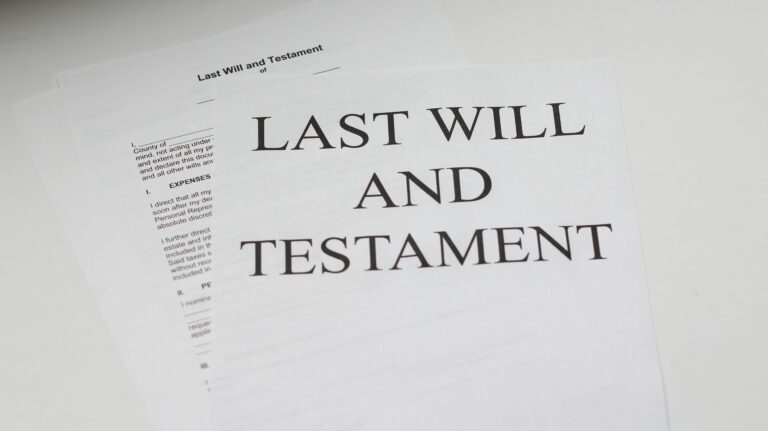
Guide to Incapacity Planning: Protecting Yourself and Your Estate
Incapacity planning is a crucial aspect of managing your estate and ensuring that your wishes are honored if you cannot make decisions for yourself. This article will examine the various components of incapacity planning, offering comprehensive advice for anyone looking to secure their future.
What Is Incapacity Planning?
Incapacity planning involves preparing legal documents and making decisions in advance should you become unable to manage your affairs due to illness, injury, or other reasons. This process ensures that your financial, health and personal preferences are respected and handled according to your wishes.
Understanding the Basics
Incapacity planning isn’t just for the elderly; unexpected life events can happen at any age. It’s about taking control of your future, regardless of what may happen. This planning includes choosing who will make decisions on your behalf and outlining your wishes for medical treatment and financial management.
The Importance of Early Planning
The best time to plan is now. Waiting until you’re incapacitated leaves your loved ones with difficult decisions and could lead to court involvement. Early planning ensures that your wishes are clear and legally documented.
What Is a Power of Attorney?
A Power of Attorney (POA) is a legal document allowing you to appoint someone to handle your affairs if you cannot. There are different types of POAs, each with specific functions.
Financial Power of Attorney
This document grants someone authority to manage your financial matters, from paying bills to handling investments. Choosing someone trustworthy and capable of managing your finances effectively is essential.
Medical Power of Attorney
Also known as a healthcare proxy, this allows someone to make medical decisions on your behalf. Discussing your wishes with this person is crucial, ensuring that they understand your preferences for medical treatment.
What Role Does a Trust Play in Incapacity Planning?
A trust is a legal arrangement where a trustee holds assets on behalf of a beneficiary. Trusts can be particularly useful in incapacity planning.
Revocable Living Trust
This type of trust allows you to maintain control over your assets while alive and capable. In the event of incapacity, a successor trustee can manage the trust assets according to your wishes.
Using Trusts to Avoid Guardianship
By setting up a trust, you can avoid needing a court-appointed guardian or conservator, since the trust’s instructions will guide how your assets are managed.
How Can I Ensure That My Medical Wishes are Respected?
Documenting your healthcare preferences is a vital part of incapacity planning. This ensures that your medical treatment aligns with your values and wishes.
Living Wills and Healthcare Directives
A living will or healthcare directive outlines your wishes for medical treatment, including end-of-life care. This can include specific instructions on issues, like life support and feeding tubes.
HIPAA Authorization
The federal Health Insurance Portability and Accountability Act (HIPAA), known as the Privacy Rule, gives individuals rights over their health information and sets rules and limits on who can look at and receive a person’s health information. A HIPAA authorization is a legal document that enables your healthcare providers to share your medical information with the individuals you’ve designated.
Healthcare Surrogate or Medical Agent
While the HIPAA authorization allows chosen individuals to receive or view your healthcare information, a healthcare surrogate or medical agent is an authorized individual who can make decisions for your medical care when you cannot.
What Happens If I don’t have an Incapacity Plan?
Without a plan, your family may face legal hurdles and difficult decisions. They may need to seek guardianship or conservatorship, which can be time-consuming, expensive, and stressful.
The Risk of Court Intervention
Without proper documents, a court may appoint someone to make decisions for you who might not align with your preferences. This can lead to family disputes and added emotional stress.
Ensuring Your Wishes are Followed
An effective incapacity plan helps avoid these issues, ensuring that your wishes are known and respected and that someone you trust makes decisions on your behalf.
How Do I Choose the Right People to Act on My Behalf?
Choosing the right individuals to make decisions for you is crucial. They should be people you trust, who understand your values and are willing to act in your best interests.
Selecting a Health Care Proxy
Your healthcare proxy appointee should understand your medical preferences and be willing to advocate on your behalf, even under challenging circumstances.
Choosing a Financial Proxy
Selecting someone with financial acumen and integrity is essential for managing your financial affairs. This person should be organized, responsible and understand your financial goals well.
Can Incapacity Planning Reduce Estate Taxes?
While incapacity planning primarily focuses on managing your affairs during life, it can also affect estate taxes. Proper planning can help manage your estate efficiently, potentially reducing tax liabilities.
Summary: Key Points to Remember
- Start Early: Don’t wait until it’s too late to start planning.
- Appoint Trusted Individuals: Choose people you trust to make decisions on your behalf.
- Document Your Wishes: Clearly outline your healthcare and financial management preferences.
- Consider a Trust: Trusts can provide a streamlined way to manage your assets if you become incapacitated.
- Legal Advice: Consult an estate planning attorney to ensure that your plan meets your needs and complies with legal requirements.
Incapacity planning is not just about protecting your assets; it’s about ensuring your wishes are honored and providing peace of mind for you and your loved ones. With the right planning, you can safeguard your future, no matter what it holds.



